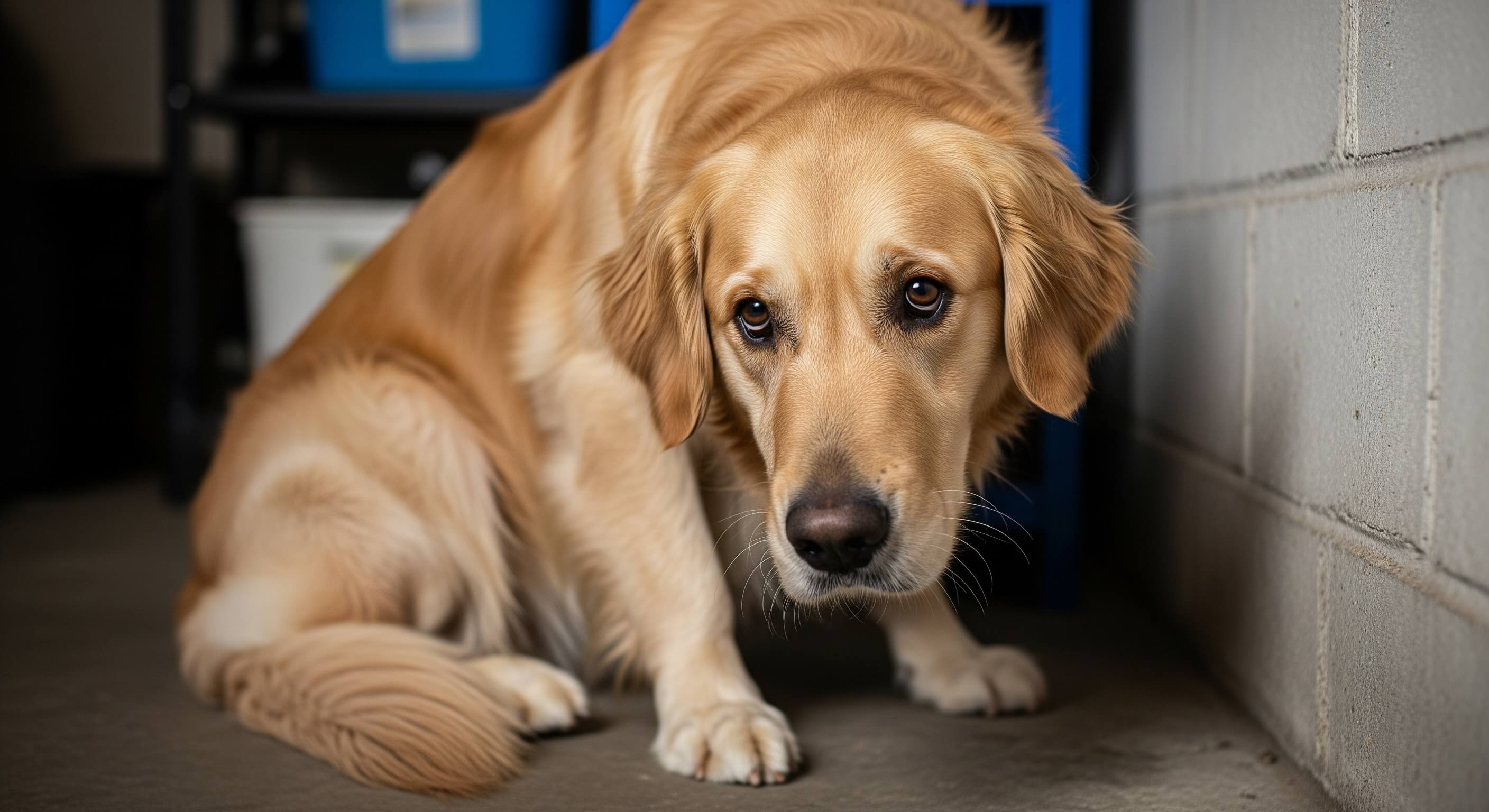Golden Retrievers are the poster pups for loyalty and love. But sometimes, that deep devotion can spiral into separation anxiety and emotional distress. If your Golden shadows your every move or seems lost when you're away, you're not alone—and your pup might be struggling with extreme attachment behaviors.
Why Are Golden Retrievers Prone to Abandonment Issues?
Goldens are bred to work closely with humans, originally as hunting companions. That instinct to stick by your side is part of their DNA. However, in modern homes, this trait can turn into a dependency that causes anxiety when left alone. These dogs are lovers, not loners.
Signs of Abandonment Anxiety in Golden Retrievers
- Whining, barking, or howling when you're out of sight
- Destructive chewing, digging, or scratching at doors
- Pacing or excessive drooling
- Refusing to eat or drink when alone
- Displaying waiting behaviors like staring at the door for hours
These aren't just bad habits—they're signals of emotional stress your Golden is trying to communicate.
Understanding Extreme Attachment Behaviors
Does your Golden follow you from room to room, even to the bathroom? Constantly needing to touch you or rest on your feet? These may seem sweet, but they can be signs of extreme attachment behaviors. When this dependence becomes unbalanced, it can harm both your dog’s mental health and your own daily life.
Case in point: My own Golden, Sunny, used to sit by the window from the moment I left until I returned—eight hours later. It broke my heart. With time, training, and enrichment, we turned it around.
What Triggers This Kind of Anxiety?
- Sudden routine changes (e.g., returning to work after WFH)
- Past trauma like rehoming or shelter experiences
- Lack of mental stimulation when alone
- Over-reliance on one person in the household
How to Help Your Golden Cope
1. Gradual Desensitization
Start with short departures and increase time slowly. Pair leaving with a treat puzzle or safe chew to create a positive association.
2. Create a Calming Routine
Stick to consistent walk, meal, and rest times. Predictability helps reduce stress.
3. Encourage Independent Play
Rotate enrichment toys like snuffle mats or Kong toys. Teach your pup that fun doesn’t only come from you.
4. Limit Reunions and Goodbyes
Keep exits and entrances low-key. Making a fuss can reinforce anxiety around separations.
5. Use Comfort Aids
- Dog-safe calming sprays
- White noise or classical music
- A shirt or blanket with your scent
Do's and Don’ts for Golden Retriever Anxiety
- DO: Use positive reinforcement and patience
- DO: Give them mental and physical outlets daily
- DON'T: Punish anxious behaviors—it will make things worse
- DON'T: Reinforce clinginess by rewarding constant following
Product Suggestions to Support Anxiety Relief
- Snuggle Puppy: Mimics the presence of another dog or human
- LickiMat Soother: Great for stress relief during alone time
- Pet Cube Cam: Let’s you check in and talk to your dog remotely
Summary: Transforming Loyalty into Balance
Golden Retrievers thrive on love, but love must be balanced with healthy independence. Recognizing signs like waiting behaviors or extreme attachment behaviors is the first step. With structure, empathy, and a few handy tools, you can guide your Golden from anxious to at ease.
Remember—you're not breaking their heart by teaching them to be okay on their own. You're giving them the confidence they deserve.
Frequently Asked Questions (FAQs)
1. What are extreme attachment behaviors in Golden Retrievers?
2. Can Golden Retrievers grow out of separation anxiety?
3. How long can a Golden Retriever be left alone safely?
4. Do waiting behaviors mean my dog is anxious?
5. Should I get another dog to help with my Golden's anxiety?
6. What professional help is available for anxious dogs?

About SniffnTail
SniffnTail is your go-to destination for everything pets. From helpful advice, tips, and insights to thoughtfully selected products and resources, we’re here to support pet owners at every stage of their journey. Whether you're caring for a playful pup, a wise old cat, or anything in between, SniffnTail offers tools and knowledge to make pet parenting easier and more joyful.
Related Articles
 Health & Wellness • 8 min read
Health & Wellness • 8 min readCavalier King Charles Spaniel Neurological Pain and Anxiety: Signs, Support & Solutions
Explore how CM/SM-related behavioral changes and pain-induced fear affect Cavalier King Charles Spaniels. Learn to recognize signs of neurological pain and support your dog with expert tips.
 Health & Wellness • 7 min read
Health & Wellness • 7 min readHow to Help Your Dog Lose Weight: Safe, Vet-Backed Tips
Discover expert tips on dog weight loss, including portion control, low-calorie treats, slow feeding methods, and exercise plans to keep your pup healthy and happy.
 Health & Wellness • 5 mins Read
Health & Wellness • 5 mins ReadParvo in Dogs and Puppies: Signs, Treatment, and Recovery
Learn about Parvo in dogs and puppies, its symptoms, prevention methods, and treatments. Sniff N Tails provides essential pet care tips to ensure your pets' health and well-being.

